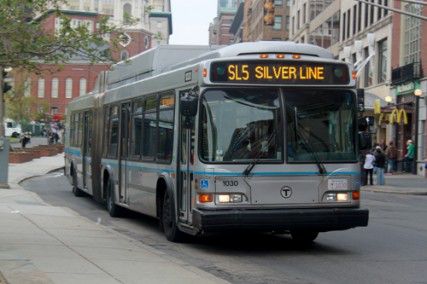
The Massachusetts Bay Transportation Authority may still be keeping low-income neighborhoods from having easy access to transportation even after building lines in the 1980s and 2000s, said filmmaker Kris Carter, who created a documentary on the history of the T.
A self-described “geeky urban planner,” recent Tufts University graduate Carter recorded the story of the MBTA, writing a paper and directing a 45-minute long documentary about the topic entitled “Equal or Better: The Story of the Silver Line.”
The documentary, created in 2011, focuses on socioeconomic inequality with respect to public transportation accessibility throughout Greater Boston.
Carter’s piece, which screened at the Boston International Film Festival on April 21, is in the running for awards at the Roxbury International Film Festival, which will take place from June 14 to 17.
The problem the film highlights originated when the city tore down the Orange Line’s predecessor, the Washington Street elevated train, in 1987 after it felt into disrepair, he wrote in his thesis.
The loss of the line meant the loss of access to downtown Boston for Roxbury residents.
When the Orange Line relocated from Dudley Square in Roxbury to Forest Hills, further southwest in Jamaica Plain, low-income residents from Roxbury suffered.
Stops on the Orange Line, such as Ruggles, Massachusetts Avenue and Back Bay, did not exist two decades ago, Carter said in an email interview.
“Look at the economic development power the train has had in that corridor,” Carter said. “Jackson Square and Forest Hills are undergoing a transformation now, a few decades after the line started, so [the new Orange Line] continues to be an economic engine for Boston and a greatly improved service for residents in those communities.”
In 2002, the MBTA created the Silver Line to reach Roxbury residents. Two Silver Line bus routes begin in Dudley Square and bring riders to metropolitan Boston, but the Silver Line bus route is technically only two-thirds completed.
The last proposed phase of the Silver Line project has not been completed, and in its current state, Carter said, the line is not sufficient to serve the more than 14,000 riders who take the Silver Line each day, according to MBTA estimates.
Building the third phase of Silver Line infrastructure, which would connect Washington Street to the Boston waterfront, will cost about $1.8 billion, according to a report by the Metropolitan Planning Organization.
But the longer the T waits, the more expensive it will become to finish the Silver Line, Carter said.
In the meantime, he said, low-income neighborhoods in Boston continue to be “underserved by public modes of transportation.”
Providing rapid access to downtown and a fast connection to the rest of the subway system from Dudley Station is critical to commuting workers in low-income areas, he said in his thesis, adding that these neighborhoods, which are predominantly black, need affordable and accessible public transportation the most.
“Advocates in Roxbury did attempt to file a Title IV grievance with the [Federal Transit Authority] that the planning process was intentionally racist,” Carter said. “That grievance was denied. Look at a map of our rapid transit system. Where are the train lines? Where are the poor communities? Who needs the transit most? They don›t align.”
In proposals to shrink the $185 million budget gap, the MBTA suggested cutting weekend trolley service to Mattapan, eliminating all ferry service and cutting back or eliminating more than 20 bus routes, but refrained from doing so after a swell of dissent came from bus riders across Boston.
Despite its budgetary issues, the T must look to the future to prevent the Hub’s transit system from falling behind, Carter said.
“We need to take care of what we have already built, but we can’t get swallowed by just getting by and neglecting transit improvements to the region,” he said. “It’s too short-sited and leads down a dangerous path.”
This is an account occasionally used by the Daily Free Press editors to post archived posts from previous iterations of the site or otherwise for special circumstance publications. See authorship info on the byline at the top of the page.



